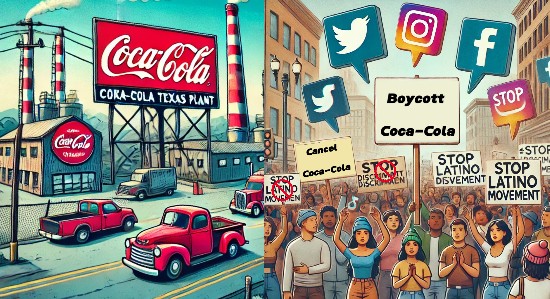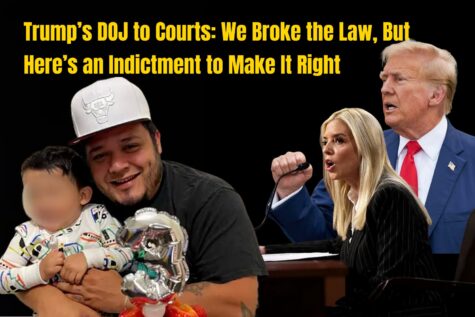Coca Cola Facing Boycott —OGM News | Recent rumors have surfaced alleging that Coca-Cola terminated a significant number of Latino employees in Texas and subsequently reported them to the U.S. Immigration and Customs Enforcement (ICE) for deportation. These claims, though unverified, have ignited widespread outrage, particularly within the Hispanic community, leading to calls for a boycott of Coca-Cola products.
Social media platforms have played a critical role in amplifying these allegations. Activists and community leaders have voiced concerns, arguing that such actions, if true, reflect a broader trend of discrimination against Latino workers. While no credible evidence has emerged to substantiate these claims, the sheer volume of online discourse has propelled the issue into mainstream discussions.
Coca Cola Facing Boycott: Storm of Social Media Backlash
Coca Cola Facing Boycott —OGM News | The controversy has gained traction across major social media platforms, including TikTok, Facebook, Instagram, and X (formerly Twitter). Users have expressed their outrage, sharing hashtags like #BoycottCocaCola and #FreezeLatinoMovement to mobilize support for a consumer boycott.
The “Freeze Latino Movement” has been particularly active, urging the Latino community to cease purchasing from major U.S. brands, including Coca-Cola, as a protest against perceived anti-immigrant actions. Prominent social media influencers and activists have posted videos and statements condemning the company, further fueling public anger. The rapid spread of the rumor underscores the growing influence of social media in shaping public opinion and corporate reputations.
Coca Cola Facing Boycott: Impact on Product Sales
Coca Cola Facing Boycott —OGM News | While specific data on the immediate financial impact of the boycott is unavailable, Coca-Cola heavily relies on Hispanic consumers, who constitute a significant portion of its customer base. If the boycott gains sustained momentum, it could potentially affect sales, particularly in regions with large Hispanic populations such as Texas, California, and Florida.
Additionally, the movement’s emphasis on supporting local and Mexican brands over major U.S. corporations could shift consumer preferences within the Latino community. This could encourage a long-term decline in Coca-Cola’s market share among Hispanic consumers, impacting both domestic and international sales.
Company Response, Strategy, or Silence: Does It Signal Guilt?
Coca Cola Facing Boycott —OGM News | As of now, Coca-Cola has not issued an official statement addressing the rumor. This silence has been widely noted by media outlets and social media users, with some interpreting it as a sign of guilt or corporate indifference. Others argue that the company may be avoiding engagement with an unverified controversy to prevent further escalation.
It is important to emphasize that no substantial evidence supports the allegations against Coca-Cola. No major news outlets have reported on the supposed terminations and ICE referrals. Notably, in 2021, Coca-Cola closed its Grand Prairie, Texas, plant, leading to the layoff of over 75 employees, but this event is unrelated to the current rumors. Until verified facts emerge, it remains crucial for consumers to rely on credible sources and factual information before taking action based on viral claims.














